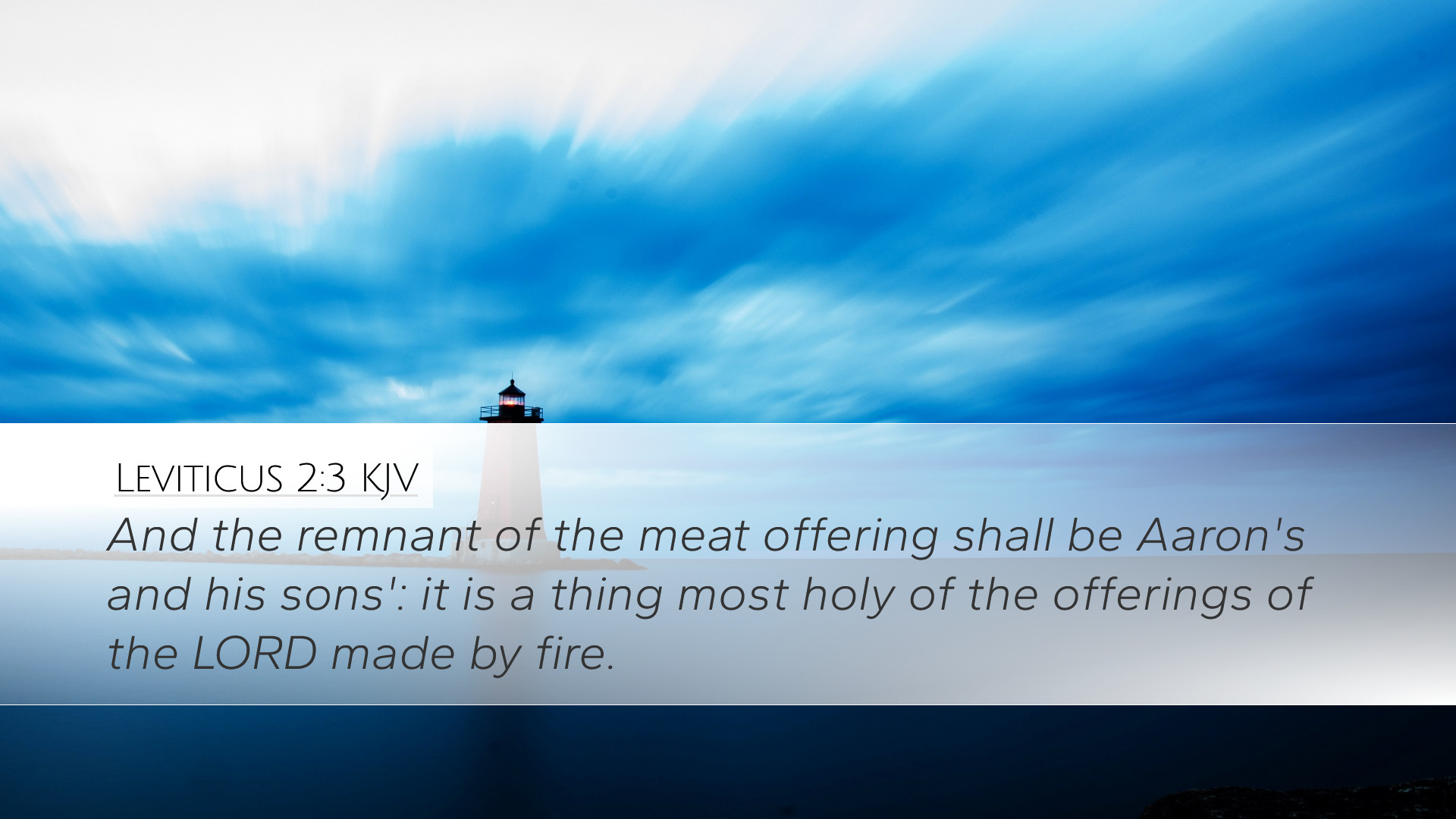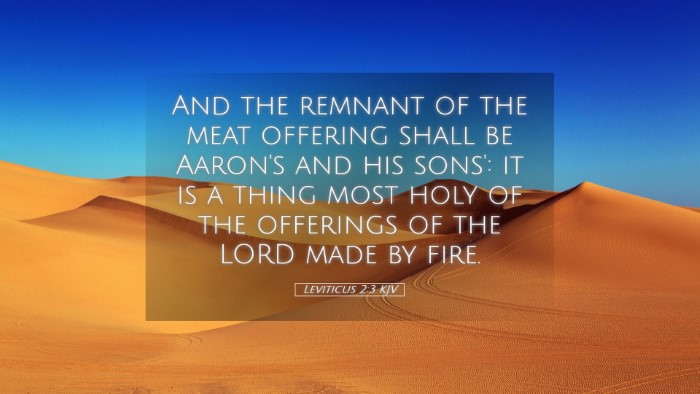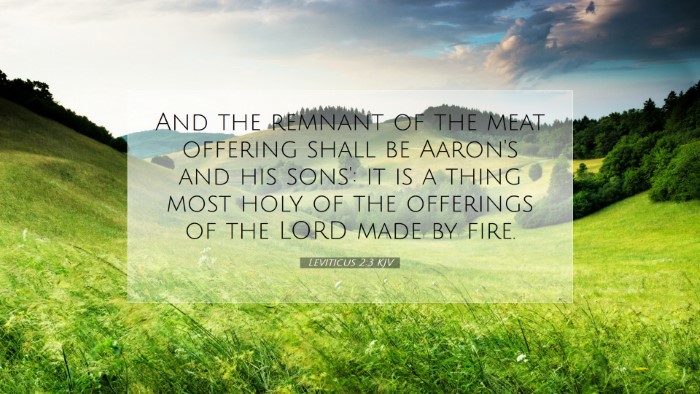Commentary on Leviticus 2:3
Verse Overview: Leviticus 2:3 states, “And the remnant of the meat offering shall be Aaron’s and his sons’: it is a thing most holy of the offerings of the Lord made by fire.” This verse addresses the grain offering, detailing the portion that belongs to the priests, indicating both the holiness of the offering and the significant role of the priesthood in the sacrificial system.
Significance of the Grain Offering
The grain offering, or meat offering as it is sometimes called, serves as a means of expressing gratitude and devotion to God. It symbolizes the dedication of the fruits of one's labor to the Lord.
- Symbol of Devotion: The offering reflects acknowledgment of God's provision, emphasizing that all sustenance comes from Him.
- Holiness of Offerings: The term “most holy” highlights that both the offering itself and the act of offering must be treated with reverence.
- Role of the Priests: This passage underscores the responsibility of the priests, Aaron and his sons, to manage these offerings, signifying their mediator role between God and the people.
Insights from Commentaries
Matthew Henry’s Commentary
Henry emphasizes the necessity of intentionality in approaching God through offerings. He notes that the grain offering was a voluntary act, demonstrating the heart's desire to honor God. He draws attention to the distinction between offerings brought for atonement and those given as an expression of gratitude, suggesting that Leviticus 2:3 specifically deals with the latter, showcasing the communal aspect of worship among the Israelites.
Albert Barnes’ Notes
Barnes elaborates on the priestly privileges and responsibilities concerning the offerings. He points out that only a portion of the grain offering was for the priests, which aligned with the concept that God appropriately allocates what is due to His ministers. He highlights the significance of the phrase “most holy,” indicating that offerings presented on the altar are intrinsically dedicated to God, and their handling requires ritual purity and respect.
Adam Clarke’s Commentary
Clarke provides an understanding of the term “meat offering,” clarifying it pertains to grain rather than flesh. He discusses the symbolism behind the offerings—grain being representative of the earth's harvest, thus linking God’s providence for the people. Furthermore, Clarke remarks that the priest’s consumption of these offerings reinforced the covenant relationship between them and the Lord. It was a vital aspect of maintaining their role as intercessors.
Theological Reflections
This verse encourages deep reflection on the nature of offerings and sacrifices in the life of believers today. While the sacrificial system as outlined in the Old Testament is no longer practiced in the same way due to Christ's ultimate sacrifice, the principles endure:
- Gratitude and Devotion: Believers are called to offer their lives—symbolized through good works and service—back to God as a form of worship.
- Recognition of God's Provision: Just as the Israelites were reminded of their reliance on God through offerings, Christians are called to recognize God’s ongoing provision in their lives.
- Role of Spiritual Leaders: The insights about priests in Leviticus remain applicable; today, church leaders serve a similar function, guiding congregations toward spiritual growth and communal worship.
Practicing Holiness in Worship
The designation of the offerings as “most holy” invites serious consideration on how today’s believers approach worship and offerings. The communal aspect of sharing in the spiritual bounty provided through the priesthood signifies the importance of fellowship in worship. Moreover, the implications of purity, intention, and devotion within worship practices are highlighted here:
- Introspection: Today’s believers should examine their motivations for giving and serving within the church.
- Unity: Just as the offerings brought the people together with their leaders and God, contemporary worship should foster a sense of unity in the body of Christ.
- Offering our Best: The principle of offering one’s best rather than one’s leftovers must be considered in every aspect of church life and individual worship.
Conclusion
Leviticus 2:3 is a powerful reminder of how offerings bind believers to God and one another. Drawing on insights from various commentaries enriches our understanding of the collective worship experience and reaffirms the importance of honoring God with intentional offerings from the heart. Whether through financial gifts, acts of service, or personal dedication, this verse challenges us to embody the principles gleaned from the sacrificial system and apply them to our modern faith practices. As we engage with this text, may we strive for holiness and gratitude in our offerings, reflecting the heart of worship God desires.


